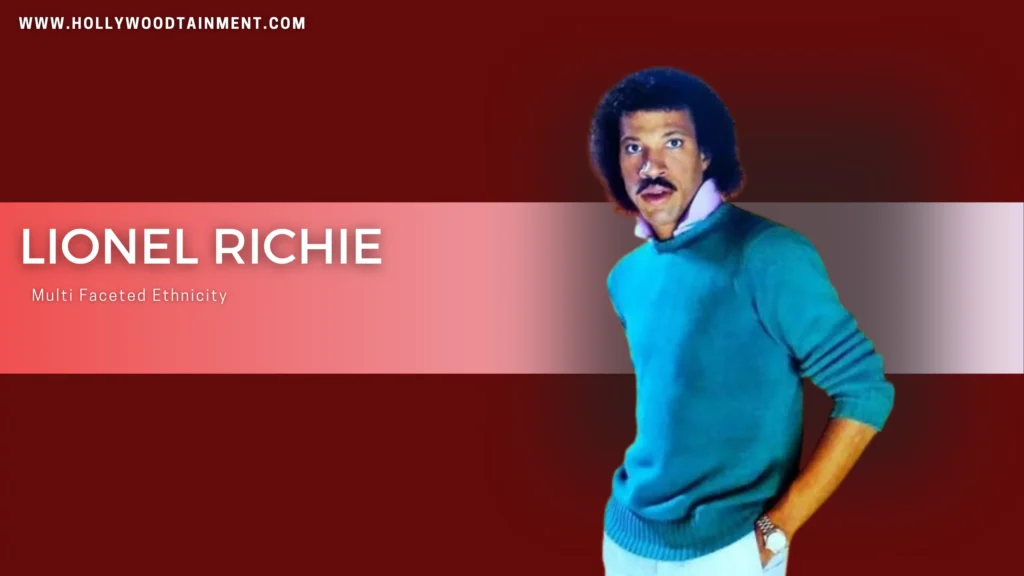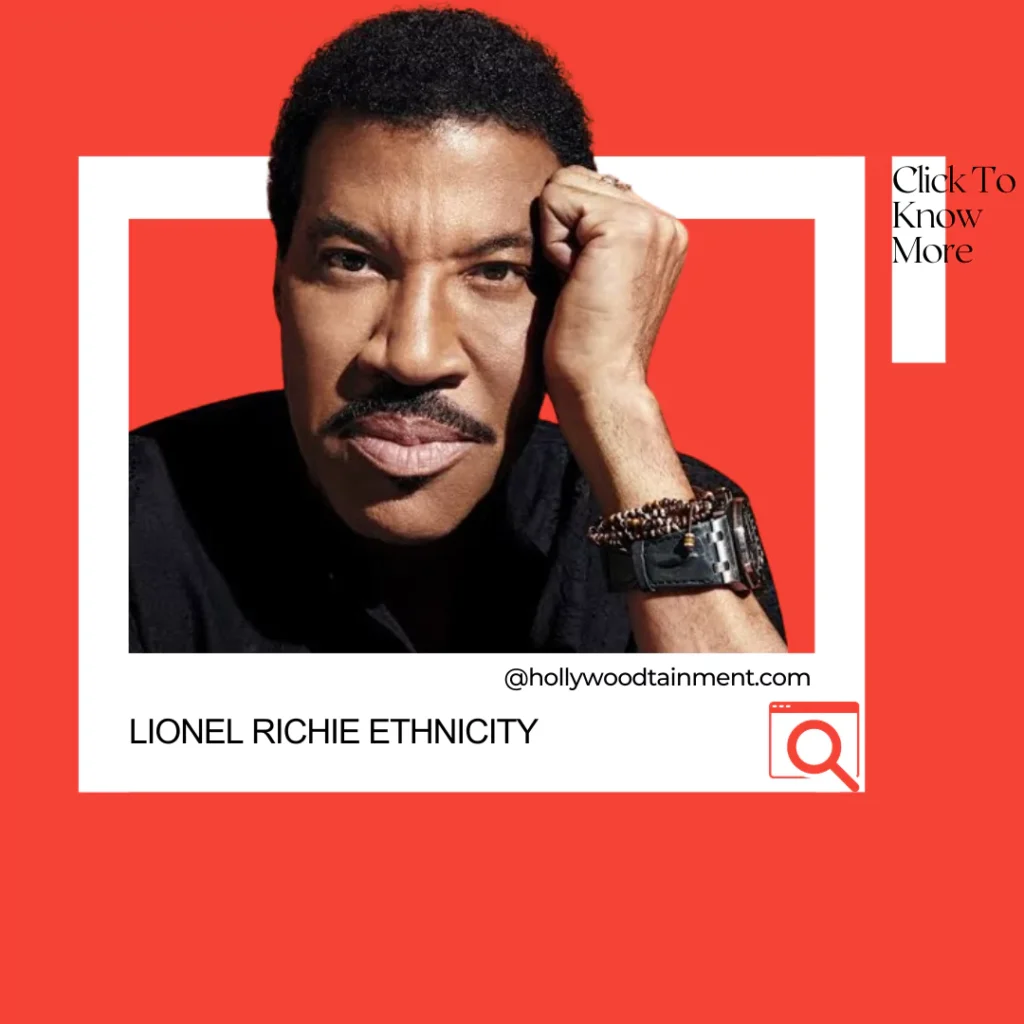Lionel Richie, the Grammy-award-winning singer-songwriter known for his soulful ballads and timeless hits, has mesmerized audiences for decades. While his music transcends borders and cultures, Richie’s cultural background adds another complexity to his artistry. This article delves into Richie’s experience while exploring what influences have helped shape his identity and contributed to its universal appeal.
Check out The Influence Of Ashley McBryde Parents On Her Journey or Linda Hamilton Spouse: A Look At The Action Hero’s Love Life or scroll through other celebrities’ life in the Hollywood Industry.

Roots in the American South
Richie was born in Tuskegee, Alabama, in 1949 to parents who both shared African American descent, while his mother, Alberta Foster, boasted a mixed heritage encompassing African American, Cherokee Native American, English French-Canadian, and Scottish ancestry. Tuskegee held special significance for Lionel as it is home to Booker T Washington, who founded Tuskegee University – a historically Black college founded in that city – which gave young Lionel a strong sense of community and cultural awareness from an early age.
Navigating Identity and Perception
Richie has often been misunderstood as Black despite being of mixed heritage, particularly during his early career. He openly acknowledges facing questions about his blackness at a time of segregation and limited opportunities for Black artists; these experiences no doubt contributed to his ability to connect with diverse audiences while touching upon universal themes of love, loss, and resilience in his music.
Embracing the Cherokee Legacy
While his African American roots have long been acknowledged, Richie has only recently begun exploring and accepting his Cherokee heritage. He has spoken about tracing his roots to Alabama’s Creek tribe for further research into his identity and highlighted the complexities associated with mixed-race heritage.
Influence on Music and Persona
Richie’s musical influences may not be readily discernible solely due to his ethnic background; however, his diverse experiences undoubtedly shaped his artistic sensibilities. His music draws on multiple genres, including soul, funk, pop, and country – indicative of an openness toward accepting different influences – perhaps attributable to being raised with diverse cultural traditions within his family.
Richie has also displayed cultural openness and inclusivity through his collaborations with artists from diverse backgrounds – Diana Ross, Kenny Rogers, Brenda Harvey (who later became his wife), and Enrique Iglesias. These efforts to bridge cultural divides resonated strongly with audiences worldwide.
Beyond Labels
He represents a rich tapestry of African American, Cherokee, and other ancestries in his heritage and life experience that defies classification; assigning him one label would do him an injustice and diminish its depth in music and life. Lionel epitomizes cultural fusion by accepting different influences while forging his path forward.
Looking Forward
As Lionel Richie continues his successful career, it will be exciting to witness whether or not he explores his ethnic heritage more deeply, either in music or his personal life. No matter his choice in this regard, Richie serves as an essential reminder that identity does not fit neatly into categories; understanding and appreciating all influences that shape individuals like Lionel Richie can lead to a deeper appreciation for both their art and humanity.
What is Lionel Richie’s ethnicity?
Lionel Richie’s ethnicity is multi-faceted, primarily consisting of African American and Cherokee Native American roots. His mother also had mixed ancestry, including English, French-Canadian, and Scottish.
How does his ethnicity influence his music?
While attributing specific musical influences directly to his ethnicity is difficult, it’s likely played a role. His willingness to explore diverse genres like soul, funk, pop, and country might reflect his exposure to different cultural traditions. He also collaborates with artists from diverse backgrounds, showcasing cultural openness.
Has Lionel Richie publicly spoken about his ethnicity?
Yes, in recent years, he has explored and embraced his Cherokee heritage more openly. He acknowledges facing questions about his blackness during his early career and emphasizes the complexities of mixed-race identities.
Why is understanding Lionel Richie’s ethnicity important?
It goes beyond simple categorization. It highlights the richness and complexity of his identity, contributing to a deeper appreciation for his music and humanity. He serves as a reminder that individuals are shaped by diverse influences, not confined to single labels.
Are there criticisms of how Lionel Richie’s ethnicity is discussed?
Some argue that focusing solely on his African American identity erases the importance of his other ancestries. Others caution against making assumptions about his personal experiences based solely on his background.







